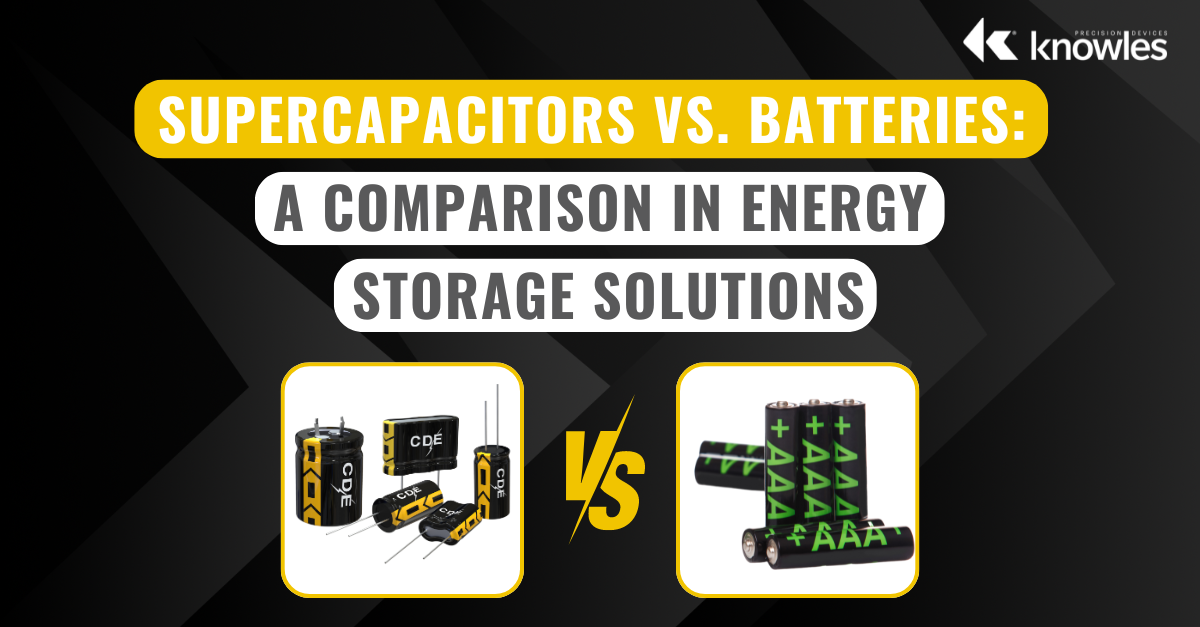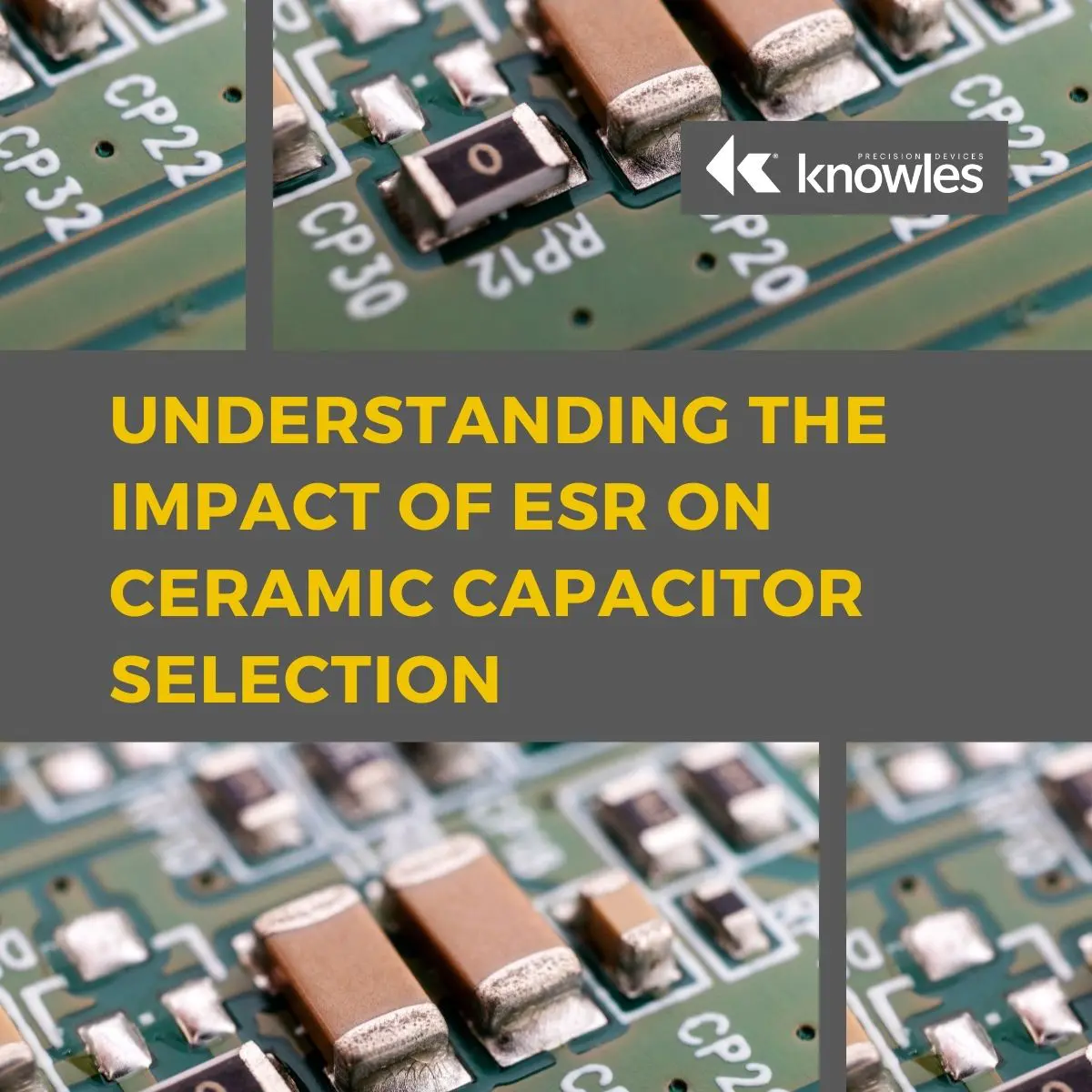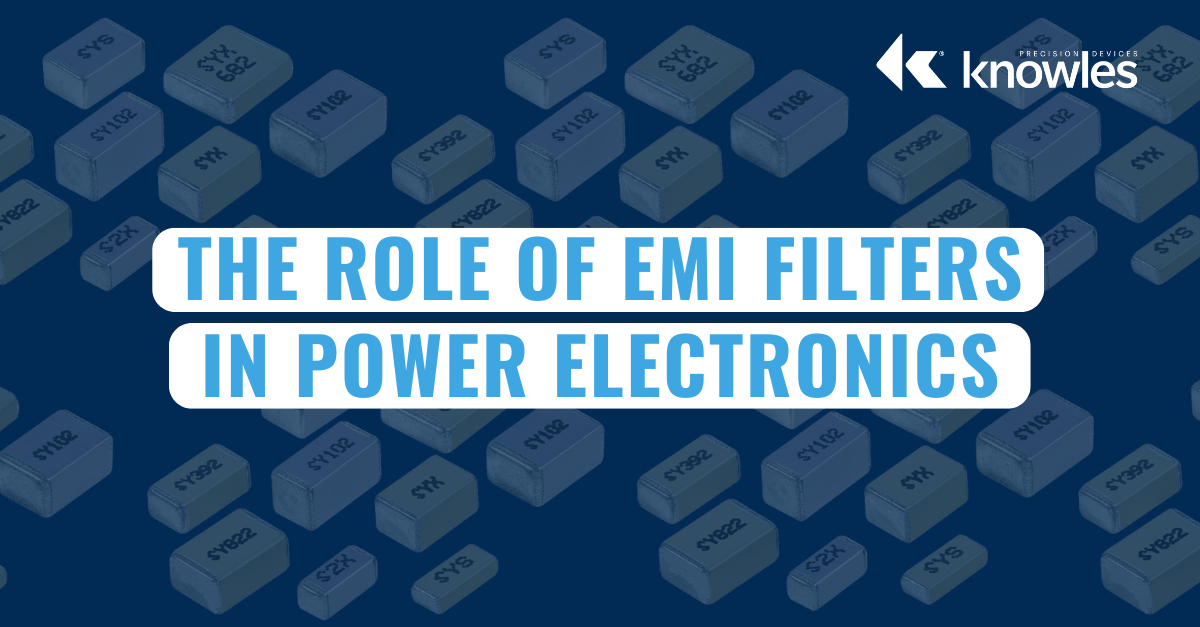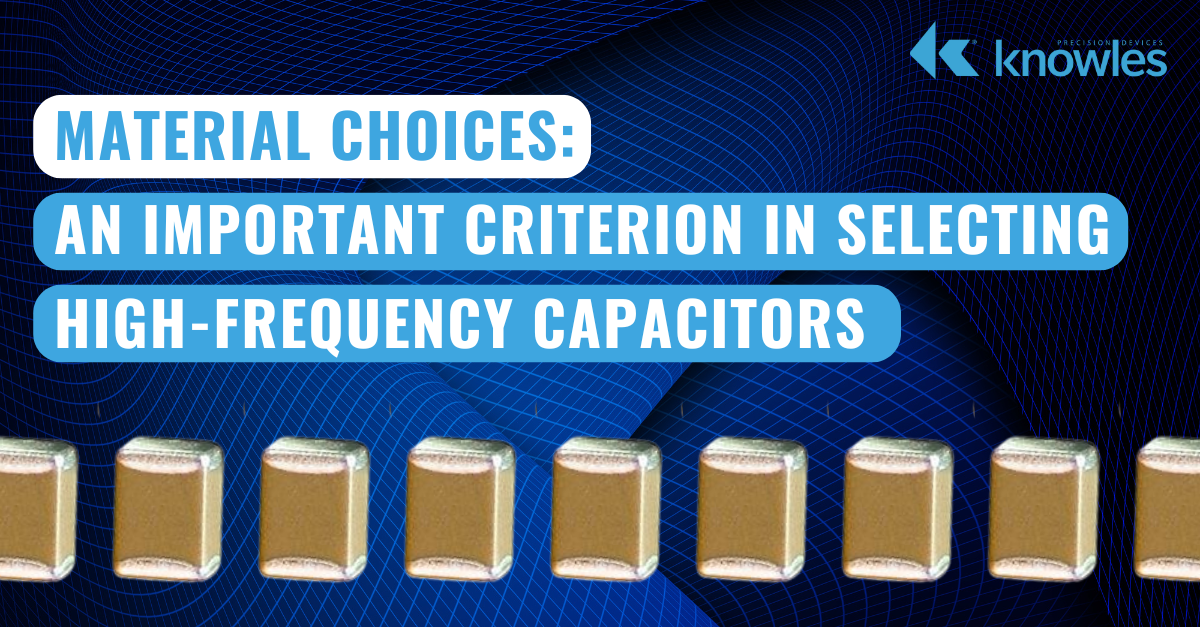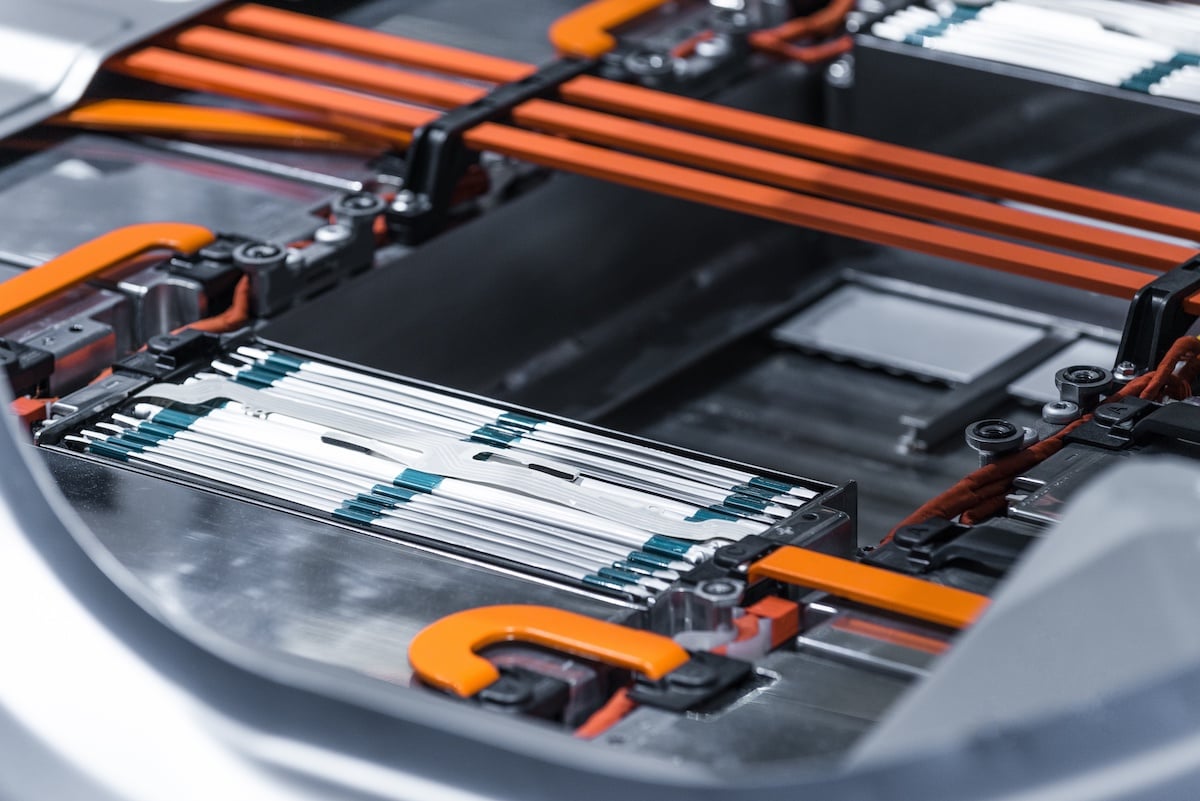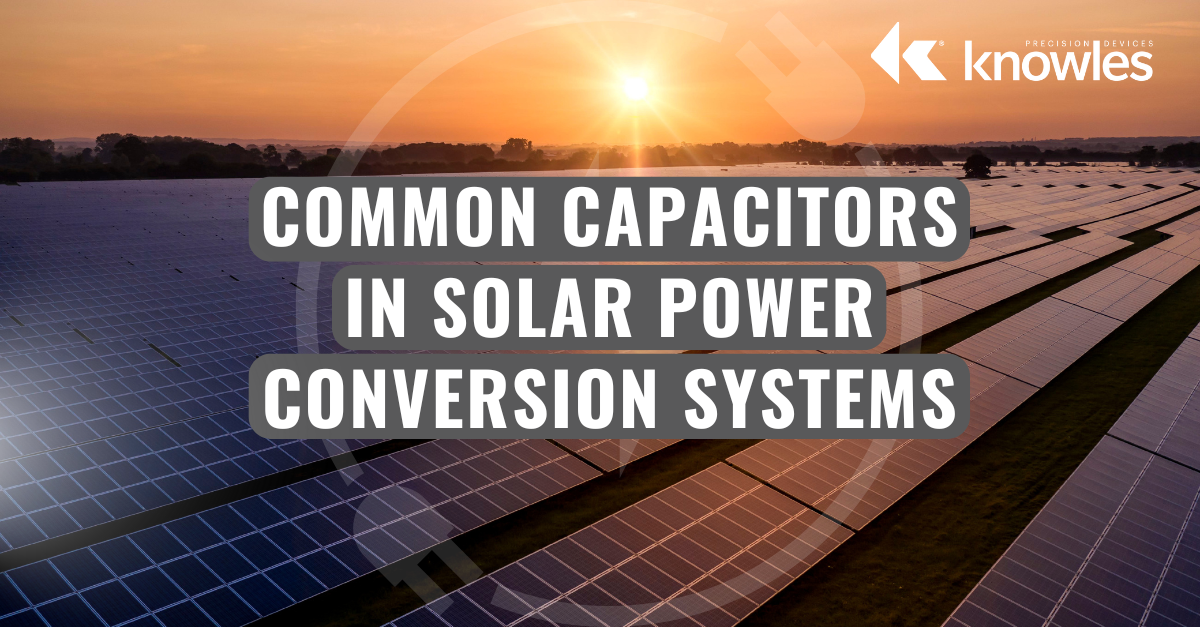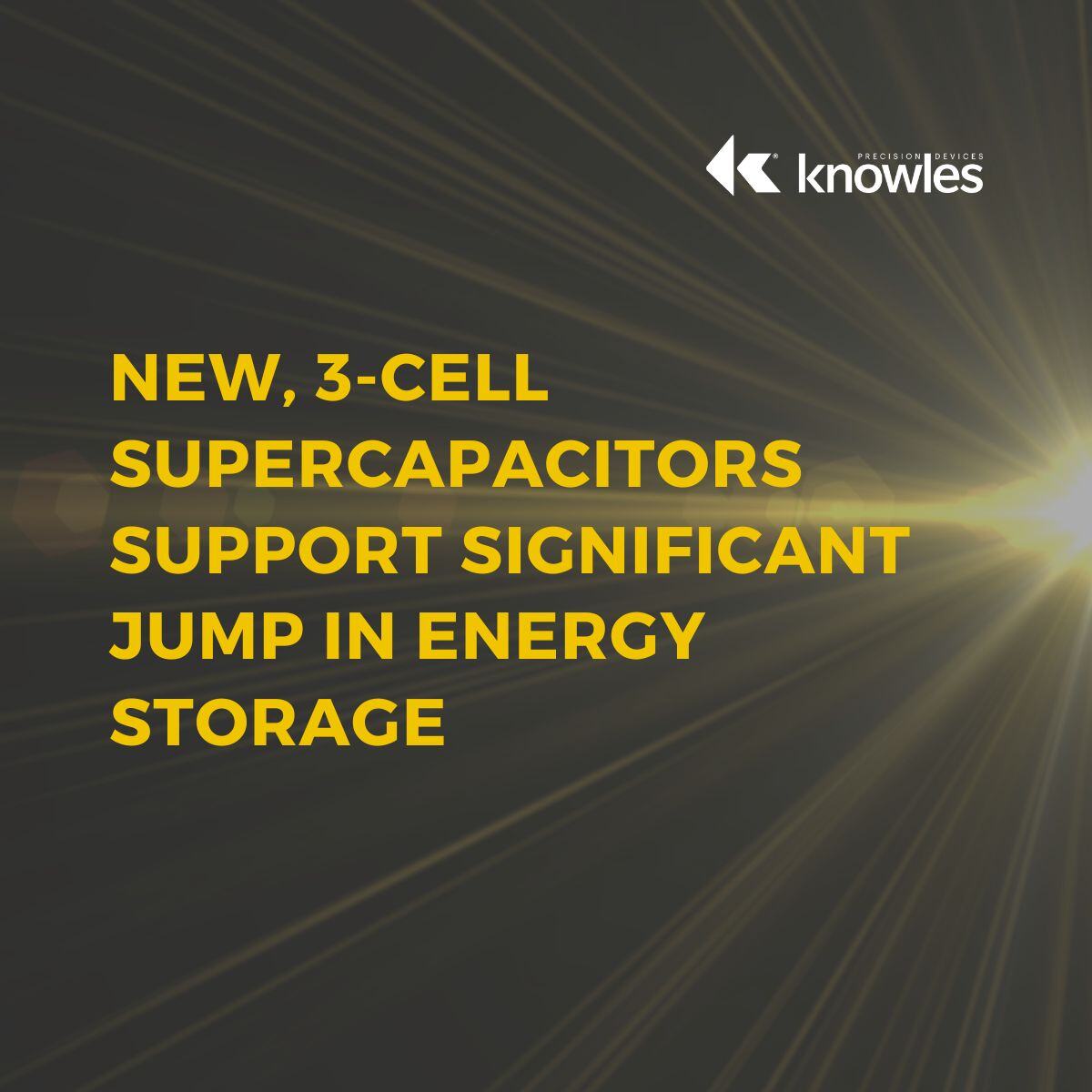Supercapacitors feature unique characteristics that set them apart from traditional batteries in energy storage applications. Unlike batteries, which store energy through chemical reactions, supercapacitors store energy electrostatically, enabling rapid charge/discharge cycles. In certain applications, this gives them a significant advantage in terms of power density, lifespan, efficiency, operating temperature range and sustainability.
Supercapacitors vs. Batteries: A Comparison in Energy Storage Solutions
Topics: Capacitor
Understanding the Impact of ESR on Ceramic Capacitor Selection
In an ideal world, capacitors could be designed in a way where they would exhibit no resistance. However, this is physically impossible to achieve as there will always be some type of internal resistance in a capacitor that appears in series with the capacitance of the device. Known as equivalent series resistance (ESR), the level of this resistance will vary across capacitors depending on a variety of factors including the dielectric materials used, frequency of the application, leakage, and quality and reliability of the capacitor. The two graphs in Figure 1 show an example of how ESR can change as frequency increases across various capacitances on two different classes of ceramic dielectrics.
Topics: Capacitor, High Reliability
Selecting Capacitors for Charge Storage in Radar Power Amplifiers
The types of threats facing radar systems are continuing to diversify. To adapt, the industry is evolving toward fully digital arrays that can support a variety of mission profiles. As these systems grow more and more complex, component-level decisions have an increasingly significant impact on overall performance.
Topics: Capacitor
As power conversion systems evolve to leverage higher voltages and wide bandgap semiconductors like silicon carbide (SiC) and gallium nitride (GaN), system designers face new challenges in managing the electromagnetic interference (EMI) frequency landscape. Here’s how EMI filters play an important role in ensuring safe operation at higher voltages.
Topics: Capacitor
Capacitors Support Radar MMIC Amplifiers via Bypassing
Monolithic microwave integrated circuit (MMIC) amplifiers are widely used in defense radar systems. The industry recognizes them as a compact, high-performance option that’s reliable and easy to integrate. Whether they serve a receive (e.g., low noise amplifier (LNA)) or transmit (e.g., power amplifier (PA)) function, MMIC amplifiers rely on bypass capacitors to perform their core function to amplify microwave signals.
Topics: Capacitor
Material Choices: An Important Criterion in Selecting High-Frequency Capacitors
Radio frequency (RF) and microwave applications involve the transmission and receipt of high-frequency electromagnetic signals. RF refers toalternating current (AC) signals at 3 kHz to 300 GHz, and microwave refers to a higher range, closer to 300 MHz to 300 GHz. Capacitance, and by extension impedance, varies with frequency, so capacitors play a variety of critical roles in these RF and microwave circuits. With many options for configuration, they function in energy storage and voltage regulation, DC blocking, impedance matching, filtering and more.
Topics: Capacitor
Looking Closer at DC Link Capacitors in Electric Vehicles
DC link capacitors are commonly used in power converters as an intermediary buffer between an input source to an output load that have different instantaneous power, voltages, and frequencies. In electric vehicle (EV) applications, DC link capacitors help offset the effects of inductance in inverters, motor controllers, and battery systems. They also serve as filters that protect EV subsystems from voltage spikes, surges, and electromagnetic interference (EMI).
Topics: Capacitor, Automotive, Electric Vehicles
Common Capacitors in Solar Power Conversion Systems
Ongoing innovation in solar power electronics and rising interest in photovoltaic (PV) installations underscores the importance of robust and efficient electronic components. Capacitors play a key role in power conversion systems as they function to smooth and regulate power flow, protect against voltage surges and filter unwanted signals.
Topics: Capacitor
Exploring the Capacitor Technologies Needed in Electric Vehicles
The electrical power systems in most modern technologies, like electric vehicles (EVs), are complex. In EVs specifically, power systems are responsible for performing many tasks such as converting AC to DC and DC to AC as well as managing changing power levels in DC/DC conversion. When performing these tasks, manipulating AC voltages and removing noise from DC voltage requires passive components such as capacitors, to perform many “jobs” inside the power system. But no single capacitor type can perform all these jobs since each one has different requirements for voltage, size, temperature, and reliability. Therefore, a variety of capacitor technologies, such as ceramic, film, and aluminum, are required to meet all these needs.
Topics: Capacitor, Electric Vehicles
New, 3-Cell Supercapacitors Support Significant Jump in Energy Storage
We recently released new supercapacitor modules that provide a significant jump in voltage rating over typical radial-mount supercapacitors, up to 9.0 WVDC.
Topics: Capacitor

